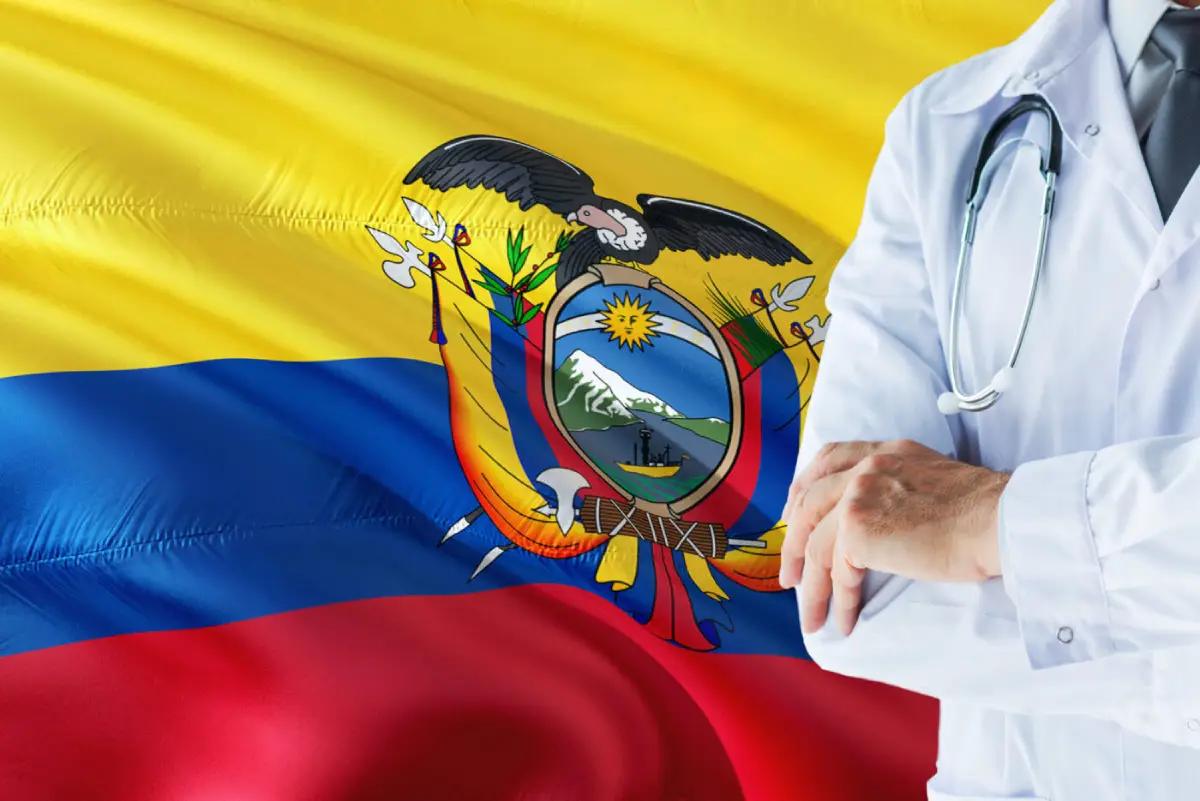TL;DR:
- Ecuador’s healthcare system is divided into public and private sectors, offering good services with quality varying.
- Facilities include hospitals, clinics, and specialized care centers, with urban areas being better equipped.
- Public healthcare is government-funded and low-cost; private healthcare is more expensive but faster and more comfortable.
- Many public hospitals meet international standards; private hospitals in major cities have high-quality care and accreditations.
- Urban areas have better healthcare access than rural areas, although the government is improving rural access.
- Healthcare costs are cheaper than in the U.S. or Europe; basic doctor’s visits cost $30-$40, hospital stays about $50 per night.
- Private insurance for retirees ranges from $70 to $150 monthly; public insurance (IESS) costs around $80.
- Coverage for pre-existing conditions is available, often with no waiting period in public insurance.
- Good accessibility to doctors and specialists in cities; diagnostic services are modern and efficiently managed.
- Many professionals speak English; good care for chronic diseases and complex conditions.
- Emergency medical services are robust, with quick response times in cities and longer in rural areas.
- Unique benefits for retirees include preventive care, integrated health services, wellness programs, and English-speaking professionals.
Thinking about retiring in Ecuador but worried about health care? You’re not alone! This article dives deep into the Ecuadorian health care system. We’ll explore the key features retirees need to know, from costs to the quality of services. Discover if Ecuador’s health care is the right fit for you and enjoy a smooth transition to your new home. Let’s get started!
What Are the Key Features of the Ecuadorian Health Care System?
Overview of the Ecuadorian Healthcare System
The Ecuadorian health care system is divided into public and private sectors. Many people ask, “Is the healthcare system in Ecuador good?” The answer is mostly yes. Ecuador has worked hard to improve its health care systems. Both public and private sectors offer good services, but the quality can vary.
Types of Health Care Facilities in Ecuador
You can find many types of health care facilities in Ecuador. There are hospitals, clinics, and specialized care centers. The most advanced and well-equipped are in bigger cities. Smaller towns and rural areas might have fewer options.
Public vs Private Health Care Options
The public health care system is funded by the government and offers free or low-cost care. Private health care, on the other hand, is more expensive but often faster and more comfortable. Many expats use private care due to its higher standards.
Quality Standards and Accreditation of Health Care Facilities
You might wonder about the quality of health care in Ecuador. Many public hospitals meet international standards. Private hospitals often boast high-quality care and several accreditations. Some renowned private hospitals in Quito and Guayaquil have top-notch facilities similar to those in the United States.
Healthcare Accessibility in Urban vs Rural Areas
Access to health care can differ greatly between cities and rural areas. Urban areas, like Quito and Cuenca, have many hospitals and clinics. Rural areas may face challenges like fewer doctors and longer travel times to reach care. However, the government is working to improve access to health care in remote regions.
Feel free to read more about Ecuador’s Healthcare System for a deeper dive into the topic.
The Ecuadorian health care system has much to offer. From various facilities to quality accreditations, there’s a lot to consider. Understanding these features can help you decide if health care in Ecuador suits your needs as a retiree.
What Are the Costs and Coverage Options for Health Care in Ecuador?
How much does health care cost in Ecuador? Health care in Ecuador can be much cheaper than in the U.S. or Europe. A basic doctor’s visit costs around $30-$40. A high-quality hospital stay costs about $50 per night. Compared to the costs in the U.S., this is a huge saving.
Health Insurance Options for Retirees: Health insurance in Ecuador varies. Private insurance plans can cost between $70 to $150 per month for retirees. These plans cover most medical expenses, including hospital stays, and some dental and vision care. Another option is the public health insurance system, IESS. With IESS, you pay a small monthly fee of about $80. The coverage includes most medical services, but the wait times can be long.
Understanding Retiree Health Care Plans: Retiree health care plans in Ecuador differ in what they cover. Private plans often include a wide range of services, from regular check-ups to emergency surgeries. Some retiree plans even offer coverage for treatments often excluded in other countries, like dental and vision. IESS, the public option, provides comprehensive coverage but might lack in quick service.
Coverage for Pre-existing Conditions: Pre-existing conditions are often a concern. But in Ecuador, you can find plans that cover pre-existing conditions. Private insurers might require a waiting period before offering full coverage for these conditions. IESS generally covers pre-existing conditions without a waiting period, making it a strong option if you have chronic illness or previous health issues.
Affordability and Value for Money of Healthcare Services: Ecuador offers great value for health care. You get good quality healthcare at a low price. This makes the costs of health care in Ecuador manageable for many retirees. The money you save on health expenses can go towards enjoying your retirement. Many expats find the combination of low cost and good quality services one of the biggest benefits of retiring here.
For more detailed and up-to-date information, check out U.S. Embassy in Ecuador’s Guide on Health Care.
What Is the Availability of Medical Professionals and Specialist Services in Ecuador?
Availability of General Practitioners and Specialists: Access to doctors in Ecuador is widespread. You can easily find experienced general practitioners (GPs) in cities like Quito, Guayaquil, and Cuenca. Specialist services in Ecuador are also common, especially in major urban areas. Specialists in cardiology, orthopedics, and gastroenterology are accessible. However, smaller towns may have fewer specialists.
Diagnostic and Specialist Services Accessibility: Diagnostic services in Ecuador are of good quality. Labs and clinics have modern equipment for tests like MRIs, X-rays, and blood tests. The wait times are generally shorter compared to other countries. Specialist services in Ecuador can also include advanced diagnostics, especially in private hospitals. For instance, Hospital Metropolitano in Quito offers a wide range of diagnostics. This allows quick diagnosis and timely treatments.
Bilingual Medical Professionals: Many doctors in Ecuador speak English, especially in private clinics and hospitals. This is important for retirees who might not be fluent in Spanish. Finding a bilingual doctor can make a big difference in understanding medical advice. Specialists often have experience abroad and bring that knowledge back to Ecuador.
Specialist Care for Chronic Diseases and Complex Conditions: Ecuador offers good care for chronic diseases like diabetes and hypertension. Specialists provide ongoing care plans to manage these conditions. Complex conditions like cancer are treated with modern techniques. Hospitals like Clínica Guayaquil have oncology departments that offer chemotherapy and radiotherapy. Access to medications is also good, and pharmacies are readily available.
Rating of Medical Professionals and Healthcare Providers: Ecuador’s healthcare ranking is solid, especially in private sectors. Doctors in these institutions are well-trained, and many have studied in Europe or the U.S. Quality of care ranks high, and many retirees find the health services reliable. Reviews from expats usually highlight the professionalism and competency of healthcare providers.
In summary, you can expect excellent availability of medical professionals and specialist services in Ecuador. Bilingual doctors, good diagnostic services, and quality specialist care ensure that retirees feel well-supported. Read more on Ecuador’s healthcare ranking for detailed insights.
How to Access Emergency and Specialty Care in Ecuador?
If you need emergency care in Ecuador, you will not be alone. The country has a robust system in place. Emergency medical services are available 24/7. In big cities like Quito and Guayaquil, response times are fast, thanks to modern equipment and trained staff. In rural areas, response times can be longer.
When facing an acute health issue, head to the nearest hospital. Hospitals here follow specific procedures for acute care. You might first meet with a triage nurse who will assess your condition. From there, you can go straight to see a doctor if your case is serious. For less urgent cases, you might have to wait.
Ecuador offers both inpatient and outpatient care options. Outpatient care in Ecuador is for minor issues. You visit the hospital or clinic, see a doctor, and leave the same day. Inpatient care involves staying in the hospital for more serious conditions. Both types of care are designed to cater to different medical needs effectively.
Sometimes, a medical emergency is beyond the scope of local hospitals. At such times, medical evacuation becomes crucial. Ecuador offers reliable medical evacuation services. You can be airlifted to another country for advanced treatment if needed. Medical evacuation services in Ecuador ensure you get the best care possible.
Coordination of care across different health facilities is essential. In Ecuador, hospitals often collaborate. If one hospital is unable to treat you, they will transfer you to a more equipped one. This ensures comprehensive care and better outcomes.
The Ecuadorian healthcare system is designed to be efficient and responsive. It aims to meet the diverse needs of both local residents and expats. Coordination between outpatient and inpatient services is seamless. This helps ensure that retirees receive timely and appropriate care.
For more detailed information on healthcare facilities, visit this [External Link]. Knowing these aspects can prepare you for any medical needs you might face while enjoying your retirement in Ecuador.
What Are the Unique Health Care Benefits for Retirees in Ecuador?
When retiring in Ecuador, you can find excellent health care options. One standout feature is their preventive and wellness care. Regular check-ups and screenings help you stay healthy and catch issues early. This focus on prevention can truly improve your quality of life.
Retirement communities in Ecuador often include integrated health care services. Imagine having doctors and nurses right there where you live. Some even offer emergency response systems for added safety. You won’t just be living; you’ll be thriving.
Lifestyle and wellness programs are another perk. Many places offer yoga, fitness classes, and even meditation sessions. These programs are designed to keep both your mind and body in great shape. The local culture promotes an active and stress-free way of life, which adds to the appeal.
Long-term care and nursing services are also available for those who need them. Specialized care facilities offer a range of services for different needs, including assistance with daily activities. This can provide peace of mind for you and your family.
Support groups and community health initiatives are common. These communities provide avenues for social interaction and emotional support. There are groups for various interests and conditions, making it easy to find friends and stay engaged.
Ecuador’s expatriate healthcare system is well-established. Many medical professionals speak English, making communication easy. You will feel supported and understood, which is crucial when discussing health issues.
So, if you’re considering Ecuador for retirement, look no further. The emphasis on preventive care, integrated medical services, and a focus on wellness makes it a strong choice. The quality of life and health benefits can’t be ignored. Moving to Ecuador might be the best decision you make for your golden years.
Conclusion
Ecuador offers a dynamic healthcare system with varied options to fit your needs. From navigating public and private care to understanding costs and insurance, there’s much to consider. Accessibility and quality standards differ, especially between urban and rural areas. For retirees, Ecuador provides tailored health benefits and a strong focus on wellness. Specialist services and emergency care are accessible, with bilingual professionals adding ease for expats. Overall, Ecuador is a solid choice for comprehensive and affordable healthcare, ensuring a smooth transition and a healthy life abroad.












